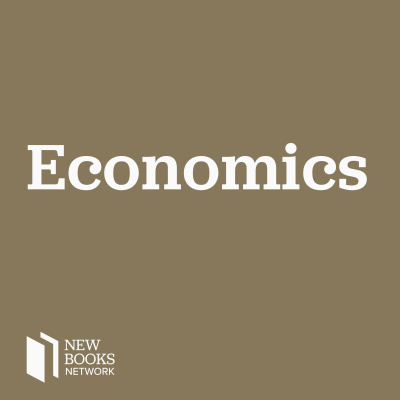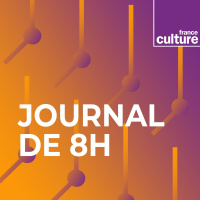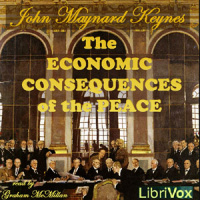Sinopsis
Interviews with Economists about their New Books
Episodios
-
Vivek Chibber, "Confronting Capitalism: How the World Works and How to Change It" (Verso, 2022)
03/11/2022 Duración: 01h10minWhy is our society so unequal? Why, despite their small numbers, do the rich dominate policy and politics even in democratic countries? Why is it so difficult for working people to organize around common interests? How do we begin to build a more equal and democratic society? In Confronting Capitalism: How the World Works and How to Change It (Verso, 2022), Vivek Chibber provides a clear and accessible map of how capitalism works, how it limits the power of working and oppressed people, and how to overcome those limits. The capitalist economy generates incredible wealth but also injustice. Those who own the factories, hotels, and farms always have an advantage over the people who rely on that ownership class for their livelihoods. This inequality in power and income is reflected in the operation of the state, where capitalists are able to exert their will even under relatively democratic conditions. The most important reason is that states depend on the employment and profits from capitalist enterprise for b
-
Bruce G. Carruthers, "The Economy of Promises: Trust, Power, and Credit in America" (Princeton UP, 2022)
02/11/2022 Duración: 42minA comprehensive and illuminating account of the history of credit in America, The Economy of Promises: Trust, Power & Credit in America (Princeton UP, 2022) by Northwestern University Professor Bruce Carruthers is a far-reaching study of credit in nineteenth- and twentieth-century America. Synthesizing and surveying economic and social history, Bruce Carruthers examines how issues of trust stitched together the modern U.S. economy. In the case of credit, that trust involves a commitment by debtors to repay money they have borrowed from lenders. Each promise poses a fundamental question: why does the lender trust the borrower? The book tracks the dramatic shift from personal qualitative judgments to the impersonal quantitative measurements of credit scores and ratings, which make lending and economic activity on a much greater scale possible. It discusses how lending is shaped by the shadow of failure, and the possibility that borrowers will break their promises and fail to repay their debts. It reveals how cr
-
The Future of Money Laundering: A Discussion with Oliver Bullough
01/11/2022 Duración: 01h02minHow can you hide and spend billions of dollars? Many people hoping to do that go to London which is today considered the money laundering capital of the world. It’s the place where the world’s most corrupt individuals can park their money safely. How does that work? Where else does it happen and can anything be done about it? Owen Bennett Jones discusses the business of cleaning up dirty money with a journalist and author who has covered kleptocrats and their ill gotten gains for years, Oliver Bullough. He is the author of Butler to the World: How Britain Helps the World's Worst People Launder Money, Commit Crimes, and Get Away with Anything (St. Martin's Press, 2022). Owen Bennett-Jones is a freelance journalist and writer. A former BBC correspondent and presenter he has been a resident foreign correspondent in Bucharest, Geneva, Islamabad, Hanoi and Beirut. He is recently wrote a history of the Bhutto dynasty which was published by Yale University Press. Learn more about your ad choices. Visit megaphone.fm/
-
Max H. Bazerman, "Complicit: How We Enable the Unethical and How to Stop" (Princeton UP, 2022)
01/11/2022 Duración: 27minIt is easy to condemn obvious wrongdoers such as Elizabeth Holmes, Adam Neumann, Harvey Weinstein, and the Sackler family. But we rarely think about the many people who supported their unethical or criminal behavior. In each case there was a supporting cast of complicitors: business partners, employees, investors, news organizations, and others. And, whether we're aware of it or not, almost all of us have been complicit in the unethical behavior of others. In Complicit: How We Enable the Unethical and How to Stop (Princeton UP, 2022), Harvard Business School professor Max Bazerman confronts our complicity head-on and offers strategies for recognizing and avoiding the psychological and other traps that lead us to ignore, condone, or actively support wrongdoing in our businesses, organizations, communities, politics, and more. Complicit tells compelling stories of those who enabled the Theranos and WeWork scandals, the opioid crisis, the sexual abuse that led to the #MeToo movement, and the January 6th U.S. Cap
-
Brian A. Wong, "The Tao of Alibaba: Inside the Chinese Digital Giant That Is Changing the World" (PublicAffairs, 2022)
01/11/2022 Duración: 01h04minThis podcast features Brian A. Wong, discussing his new book, The Tao of Alibaba: Inside the Chinese Digital Giant That is Changing the World (Public Affairs, 2022). Brian joined Alibaba early, as its 52nd employee and first American employee, and worked for them for nearly twenty years. His book provides both insider insights and an analytical perspective on how Alibaba grew to become one of the most important companies in the global digital economy. This well-written and engaging book explains Alibaba’s unique organizational culture and how the Alibaba platform has helped spread economic opportunity beyond the elites in China’s big cities to the broader world of small and medium businesses throughout the country. Brian Wong’s Radii China is an independent media platform founded in 2017 dedicated to bridging the East and West by highlighting topics and issues that connect the world’s young, globally-minded citizens. Listeners interested in the development of the US-China relationship are encouraged to partic
-
Ashley Sweetman, "Cyber and the City: Securing London’s Banks in the Computer Age" (Springer, 2022)
01/11/2022 Duración: 50minDr. Ashley Sweetman works in cyber security for a London-based global bank and holds a PhD from the Department of War Studies at King’s College London. While studying for his PhD he spent a short time as Researcher-in-Residence at No. 10 Downing Street while working for The Strand Group in the Policy Institute at King's. Before this, Ashley studied History at Queen Mary, University of London. Ashley is a proud Welshman and was brought up in Neath, South Wales. He currently lives in North London. In his first book Cyber and the City: Securing London's Banks in the Computer Age (Springer, 2022), Sweetman provides evidence that cyber security is a long-lived phenomenon. Banks started to worry about it early in the adoption of computers in the late 1950s. The UK has a particular feature where banks rapidly agree on the measures to be taken, making the overall system more resilient. Sweetman uses a wealth of archival material and introduces de concepts of proportionality and the confidentiality-integrity-availabi
-
Tom Haines-Doran, "Derailed: How to Fix Britain's Broken Railways" (Manchester UP, 2022)
31/10/2022 Duración: 42minWhy don't trains run on time? Why are fares so expensive? Why are there so many strikes? Few would disagree that Britain's railways are broken, and have been for a long time. In Derailed: How to Fix Britain's Broken Railways (Manchester University Press, 2022), Dr. Tom Haines-Doran provides an insightful new book that calls for a radical rethink of how we view the railways, and explains the problems we face and how to fix them. Dr. Haines-Doran argues that the railways should be seen as a social good and an indispensable feature of the national economy. With passengers and railway workers holding governments to account, we could then move past the incessant debates on whether our railways are an unavoidably loss-making business failure. An alternative vision is both possible and affordable, enabling the railways to play an instrumental role in decreasing social inequalities, strengthening the economy and supporting a transition to a sustainable future. This interview was conducted by Dr. Miranda Melcher whose
-
Daniel D. Garcia-Swartz and Martin Campbell-Kelly, "Cellular: An Economic and Business History of the International Mobile-Phone Industry" (MIT Press, 2022)
28/10/2022 Duración: 55minIn this episode, we discuss a book that will be appealing to a general audience and which helps to bridge the gap of the story of communication in the broad history of computer technology. In Cellular: An Economic and Business History of the International Mobile-Phone Industry (MIT Press, 2022), Daniel D. Garcia-Swartz and Martin Campbell-Kelly make a splendid job to portray the evolution of this industry from the times of Marconi all the way to 5G networks, while considering developments in places as diverse as China, Mexico, New Zealand and of course, Europe, Japan and the USA. Bernardo Batiz-Lazo is currently straddling between Newcastle and Mexico City. You can find him on twitter on issues related to business history of banking, fintech, payments and other musings. Not always in that order. @BatizLazo Learn more about your ad choices. Visit megaphone.fm/adchoices Support our show by becoming a premium member! https://newbooksnetwork.supportingcast.fm/economics
-
Matthias Bernt, "The Commodification Gap: Gentrification and Public Policy in London, Berlin and St. Petersburg" (Wiley, 2022)
28/10/2022 Duración: 57minThe Commodification Gap: Gentrification and Public Policy in London, Berlin and St. Petersburg (Wiley, 2022) provides an insightful institutionalist perspective on the field of gentrification studies. The book explores the relationship between the operation of gentrification and the institutions underpinning - but also influencing and restricting - it in three neighborhoods in London, Berlin and St. Petersburg. Matthias Bernt demonstrates how different institutional arrangements have resulted in the facilitation, deceleration or alteration of gentrification across time and place. The book is based on empirical studies conducted in Great Britain, Germany and Russia and contains one of the first-ever English language discussions of gentrification in Germany and Russia. It begins with an examination of the limits of the widely established “rent-gap” theory and proposes the novel concept of the “commodification gap.” It then moves on to explore how different institutional contexts in the UK, Germany and Russia ha
-
Dan Immergluck, "Red Hot City: Housing, Race, and Exclusion in Twenty-First-Century Atlanta" (U California Press, 2022)
25/10/2022 Duración: 36minAtlanta, the capital of the American South, is at the red-hot core of expansion, inequality, and political relevance. In recent decades, central Atlanta has experienced heavily racialized gentrification while the suburbs have become more diverse, with many affluent suburbs trying to push back against this diversity. Exploring the city’s past and future, Red Hot City: Housing, Race, and Exclusion in Twenty-First-Century Atlanta (U California Press, 2022) tracks these racial and economic shifts and the politics and policies that produced them. Dan Immergluck documents the trends that are inverting Atlanta’s late-twentieth-century “poor-in-the-core” urban model. New emphasis on capital-driven growth has excluded low-income people and families of color from the city’s center, pushing them to distant suburbs far from mass transit, large public hospitals, and other essential services. Revealing critical lessons for leaders, activists, and residents in cities around the world, Immergluck considers how planners and p
-
Agha Bayramov, "Constructive Competition in the Caspian Sea Region" (Routledge, 2022)
20/10/2022 Duración: 39minThe Caspian Sea region has hitherto largely been investigated from a New Great Game' perspective that depicts the region as a geopolitical battleground between regional and external great powers, where tensions have been exacerbated by the sea's rich natural resources, strategic location, and legal disagreements over its status. Agha Bayramov,'s book Constructive Competition in the Caspian Sea Region (Routledge, 2022), by contrast, portrays a new image of the region, which still acknowledges the difficulties and problematic starting situation of power politics there. It, however, seeks to show that there are ways forward by identifying mechanisms and means to transform the New Great Game' into processes of functional co-operation. Drawing on theoretical insights from a functionalist framework, this book examines three intertwined case studies, namely the Baku-Tbilisi-Ceyhan pipeline (BTC), the Southern Gas Corridor (SGC), and the Caspian Environmental Program (CEP). It shows that lessons learned from envi
-
Paul Daugherty and H. James Wilson, "Radically Human: How New Technology Is Transforming Business and Shaping Our Future" (HBR Press, 2022)
20/10/2022 Duración: 37minToday I talked to Jim Wilson about his book (co-authored with Paul Daugherty) Radically Human: How New Technology Is Transforming Business and Shaping Our Future (HBR Press, 2022). Technology has evolved from device intelligence to data intelligence (big data) to now the new stage of a more human-centric approach where the user/worker’s needs, wants and biases are being taken into account to make technology easier to deploy and more of an equal partner. That’s the progression Jim Wilson champions in this book and on-air conversation. Covid-19 ushered in not only a host of human behavior changes, e.g., hybrid work arrangements and the Great Resignation, the pandemic also spurred the Great Acceleration as companies rushed to adopt technology that will transform their business practices. How to do so in a way that will democratize technology, empowering employees and rewarding customers along the way, is the challenge that Wilson addresses here. After all, technology innovations that don’t also safeguard and enh
-
On Adam Smith's "The Wealth of Nations"
19/10/2022 Duración: 40minIn 1776, Adam Smith published The Wealth of Nations, an investigation into the nature of wealth. Smith is now considered the Father of Capitalism or the Father of Modern Economics. In fact, many people think of him as an economist and only an economist, but scholars tend to think of him as a moral philosopher. Smith lived in an era of great change, and the moral questions of the time were closely linked to developing politics and economies. Glory Liu is a College Fellow in Social Studies at Harvard University. She is currently working on an intellectual history of Adam Smith’s reception in American politics and political economy from the eighteenth century to the present. See more information on our website, WritLarge.fm. Follow us on Twitter @WritLargePod. Learn more about your ad choices. Visit megaphone.fm/adchoices Support our show by becoming a premium member! https://newbooksnetwork.supportingcast.fm/economics
-
Kimberly Kay Hoang, "Spiderweb Capitalism: How Global Elites Exploit Frontier Markets" (Princeton UP, 2022)
17/10/2022 Duración: 42minIn 2015, the anonymous leak of the Panama Papers brought to light millions of financial and legal documents exposing how the superrich hide their money using complex webs of offshore vehicles. Spiderweb Capitalism: How Global Elites Exploit Frontier Markets (Princeton UP, 2022) takes you inside this shadow economy, uncovering the mechanics behind the invisible, mundane networks of lawyers, accountants, company secretaries, and fixers who facilitate the illicit movement of wealth across borders and around the globe. Kimberly Kay Hoang traveled more than 350,000 miles and conducted hundreds of in-depth interviews with private wealth managers, fund managers, entrepreneurs, C-suite executives, bankers, auditors, and other financial professionals. She traces the flow of capital from offshore funds in places like the Cayman Islands, Samoa, and Panama to special-purpose vehicles and holding companies in Singapore and Hong Kong, and how it finds its way into risky markets onshore in Vietnam and Myanmar. Hoang reveals
-
Jakob Feinig, "Moral Economies of Money: Politics and the Monetary Constitution of Society" (Stanford UP, 2022)
17/10/2022 Duración: 42minIn this podcast Jakob Feinig introduces his ideas about how and when people's practices and institutions shape money and money creation. He provided deep insight into historical episodes to support his view. Towards the end, he comments on the challenges of digital currencies. Feinig is the author of Moral Economies of Money: Politics and the Monetary Constitution of Society (Stanford UP, 2022). Ideas discussed in the podcast that you might want to pursue further or clarify: Chartalism and Modern Monetary Theory. Here are some thinkers who explore similar ideas: Rohan Grey, Geoffrey Ingham, Lana Swartz, E. P. Thompson and Viviana Zelizer. Bernardo Batiz-Lazo is currently straddling between Newcastle and Mexico City. You can find him on twitter on issues related to business history of banking, fintech, payments and other musings. Not always in that order. @BatizLazo. Learn more about your ad choices. Visit megaphone.fm/adchoices Support our show by becoming a premium member! https://newbooksnetwork.supporting
-
Scott Moore, "China's Next Act: How Sustainability and Technology Are Reshaping China's Rise and the World's Future" (Oxford UP, 2022)
13/10/2022 Duración: 52min“We’ll compete with confidence; we’ll cooperate wherever we can; we’ll contest where we must.” That’s the new China strategy as outlined by U.S. Secretary of State Antony Blinken earlier this year. But just exactly how countries should deal with China—including working with it, when the times call for it—is perhaps the thorniest question in international relations right now, at least in the West. Scott Moore gives his framework on the U.S. and China in China's Next Act: How Sustainability and Technology are Reshaping China's Rise and the World's Future (Oxford University Press, 2022). With reference to issues like public health, A.I and biotechnology, he gives his views on how the U.S. should approach China–cooperation, competition or conflict. In this interview, Scott and I talk about the U.S.-China relationship, how it’s changed–and how U.S.-China competition could, under the right circumstances, still lead to global progress. Scott M. Moore is Director of China Programs and Strategic Initiatives in the Off
-
Margarita Fajardo, "The World That Latin America Created: The United Nations Economic Commission for Latin America in the Development Era" (Harvard UP, 2021)
07/10/2022 Duración: 01h04minThe World That Latin America Created: The United Nations Economic Commission for Latin America in the Development Era (Harvard University Press, 2022) tells the story of how a group of intellectuals and policymakers transformed development economics and gave Latin America a new position in the world. Making an innovative and provocative intervention across the fields of global history, Latin American history, and economic thought, Margarita Fajardo reconstructs the origins of the UN Economic Commission for Latin America, or CEPAL. Cepalinos challenged the orthodoxies of development theory and policy, outpacing the United States and the International Monetary Fund as the agenda setters for a region traditionally held under the orbit of Washington and its institutions. Their story interlocks with the emergence of dependency theory in Latin America, whose diverse history Fajardo recasts in pioneering fashion. Piotr H. Kosicki is Associate Professor of History at the University of Maryland, College Park. He is th
-
Edward Chancellor, "The Price of Time: The Real Story of Interest" (Atlantic Monthly Press, 2022)
06/10/2022 Duración: 46minEdward Chancellor's just published history of interest rates could not be better timed. As the world adjusts to rising rates after decades of falling ones, Chancellor's historical and sometimes polemical account of rates kept too low for too long seems all too prescient. Chancellor's The Price of Time: The Real Story of Interest (Atlantic Monthly Press, 2022) is a surprisingly relevant and accessible tool, not only investors but also everyone touched by interest rates. That's all of us. Daniel Peris is Senior Vice President at Federated Hermes in Pittsburgh. He can be reached at DanielxPeris@gmail.com or via Twitter @HistoryInvestor. His History and Investing blog and Keep Calm & Carry On Investing podcast are here. Learn more about your ad choices. Visit megaphone.fm/adchoices Support our show by becoming a premium member! https://newbooksnetwork.supportingcast.fm/economics
-
Alex Williams and Jeremy Gilbert, "Hegemony Now: How Big Tech and Wall Street Won the World (And How We Win it Back)" (Verso, 2022)
29/09/2022 Duración: 01h02minToday power is in the hands of Wall Street and Silicon Valley. How do we understand this transformation in power? And what can we do about it? We cannot change anything until we have a better understanding of how power works, who holds it, and why that matters. Through upgrading the concept of hegemony—understanding the importance of passive consent; the complexity of political interests; and the structural force of technology—Jeremy Gilbert and Alex Williams offer us an updated theory of power for the twenty-first century. Alex Williams and Jeremy Gilbert book Hegemony Now: How Big Tech and Wall Street Won the World (And How We Win it Back) (Verso, 2022) explores how these forces came to control our world. The authors show how they have shaped the direction of politics and government as well as the neoliberal economy to benefit their own interests. However, this dominance is under threat. Following the 2008 financial crisis, a new order emerged in which the digital platform is the central new technology of b
-
James Bessen, "The New Goliaths: How Corporations Use Software to Dominate Industries, Kill Innovation, and Undermine Regulation" (Yale UP, 2022)
29/09/2022 Duración: 45minIn The New Goliaths: How Corporations Use Software to Dominate Industries, Kill Innovation, and Undermine Regulation (Yale UP, 2022), James Bessen explores the idea of how software can actually slow innovation. He makes the case that big companies in one industry after another have built "complex" software systems for managing their sales, marketing, operations and product offerings that are essentially moats against competitors. This mastery of software by major corporations, he argues, helps explain the "myth of disruptive innovation", rising economic concentration, increasing inequality and slowing innovation. James Bessen, an economist and technologist, serves as Executive Director of the Technology & Policy Research Initiative at Boston University School of Law. He has also been a successful innovator and CEO of a software company. His profile in the New York Times is here. Bernardo Batiz-Lazo is currently straddling between Newcastle and Mexico City. You can find him on twitter on issues related to busi















